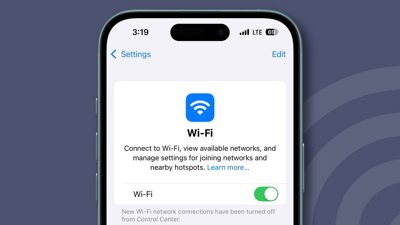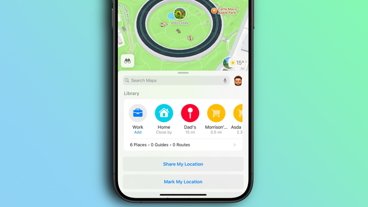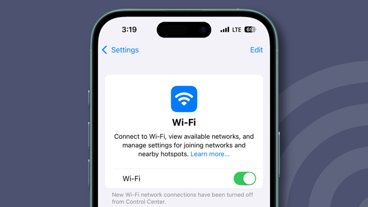Lynn noted that the iPhone 3.0 announcement had great timing, and added that hardware support for gaming peripherals and in-game micro-transactions were all exciting developments. She then asked the panel what they thought were the most exciting iPhone 3.0 announcements.
Chang, who works for a mobile display advertising network that serves full scree interstitial ads for Burger King and Axe body spray, said the new 3.0 features were "publisher focused," citing support for micro-transactions and the ability to show in-app Google maps, allowing advertising to show potential buyers how to drive to retail outlet, for example.
Seyler also talked about in-app purchases and said the new ability "really opens up a lot of opportunities." Yardley, who represents mobile analytics firm Pinch Media, also cited in-app purchases as an important new feature that is company would definitely be "tracking, optimizing and advising" his clients with in to make the most from in their apps.
Asked what missing features they had wished for in iPhone 3.0, the panel appeared stumped. "The 3.0 release is more than I expected to be honest," Seyler answered. "I was really really impressed with this." He recommended that Apple keep working on its hardware to keep it competitive.
Asked how gameplay changes with the new 3.0 platform features, Seyler said that with 3.0's iTunes library access to developers there will be "a lot more of users' own multimedia in in-game mashups."
Yardley noted that only a small number of applications get repeat usage. New push notifications will, and Facebook and other social interaction already does, result in radically different user interaction, Yardley said. His company's analytics show that "some people buy things like crazy," Yardley said, while "other people never pay for anything." Using new monetization models that support both direct payments and ad supported play will be important to reach the widest audience.
With 27,000 apps in the app store, Lynn asked next, what untapped opportunity is there? Yardley said that if your app isn't featured, you're not getting nearly the downloads. One feature he'd like to see in 3.0 is the ability to track conversions through iTunes and options for developers to better promote their own apps.
Asked if the iPhone will ever be a threat to console and PC games, Seyler answered that it already is. He noted that his company supports development on every gaming platform, and that he personally has a Nintendo DS and Sony PSP, but that he only regularly carries his iPhone.
Asked what competitors might challenge the iPhone, the panel agreed with Helgason's comment that it "remains to be seen." Other rival platforms need to unify their offerings he said. Chang added Apple had done a great job of building an ecosystem around the iPhone rather than just advertising it.
Responding to a question about how the developer mix of the App Store is likely to change, Yardley said a lot of early successes came from nimble small developers, while big developers with familiar "existing IP" are now gaining in impact, starting with titles such as Sega's Super Monkey Ball.
In terms of marketing big games and setting them apart from the piles of cheaper, simpler titles, the panel discussed how Steam creates per-publisher stores to leverage brand loyalty and promote games to users. However, in addressing the rumors of a "premium app store," where big developers could charge more for their games without the distraction of smaller developer's offerings, Yardley said that iTunes' level playing field was a core strength.
Yardley noted that while the App Store is tilted toward $1 games, there are still lots of opportunities for more expensive, sophisticated games to reach the top ten list. He recommending that developers "do not shoot yourself in the foot by going too low too fast," and to instead price their apps as high as they think they can and then offer a discount afterward it if isn't selling.
A game developer in the audience recommended that Apple add the capacity for developers to add video demos for games listed in the Apps Store, and asked about the potential for adding "real, good quality video in games." Currently, games are limited to playing full screen video through the built in QuickTime Player. The panel noted that 3.0 opens up both streaming and access to the user's iPod library, but that the details of the 3.0 SDK are still begin reviewed by developers.
 Prince McLean
Prince McLean













 Oliver Haslam
Oliver Haslam
 William Gallagher
William Gallagher
 Christine McKee
Christine McKee
 Sponsored Content
Sponsored Content

 Malcolm Owen
Malcolm Owen
 Andrew Orr
Andrew Orr








45 Comments
The additions to the iPhone OS, the new SDK APIs and the use of the previously unallowed options like BT and the 30-pin connector are going to be massive for the gaming market. When I consider the number of people I know with iPhones/iPods and DS/PSPs the combo could actually save them money overall, since they can buy one device instead of multiple and have it be a more powerful device with more and better HW features and options.
I think Sony and Nintendo are going to have to work hard to compete.
PS: The new "in app" purchases could be great for companies, like Atari, who have loads of classic games. They can make a single, official emulator and then sell their entire library through that emulator.
The "market" has already answered this. Every app in the top 50 has a YouTube video, and any app worth it's salt also has a video.
The additions to the iPhone OS, the new SDK APIs and the use of the previously unallowed options like BT and the 30-pin connector are going to be massive for the gaming market. When I consider the number of people I know with iPhones/iPods and DS/PSPs the combo could actually save them money overall, since they can buy one device instead of multiple and have it be a more powerful device with more and better HW features and options.
I think Sony and Nintendo are going to have to work hard to compete.
PS: The new "in app" purchases could be great for companies, like Atari, who have loads of classic games. They can make a single, official emulator and then sell their entire library through that emulator.
Many of the classic video games already have "generic" equivalents available on the App Store. The longer companies like Atari and Sega wait, the more time faster smaller devs have to rip them off.
Chockenberry mentioned they still didn't address the most important request developers have: demo apps. Apple said free apps remain free, but if they allowed developers that in-app commerce facility for within free apps that would solve the whole demo app situation. People would get the free version (demo) and be able to upgrade to the full version in app. Demoware!
Clearly though that would bring the numbers of apps being sold downwards as Apple could no longer call that two app downloads, when they user is not downloading another app, just improving it. It's all a bit fiddly.
The "market" has already answered this. Every app in the top 50 has a YouTube video, and any app worth it's salt also has a video.
I didn't know this existed. Unless Apple includes an option to try an app this is very coo. They can expire video, but for apps it would have to be more complex than play or not to play.
Many of the classic video games already have "generic" equivalents available on the App Store. The longer companies like Atari and Sega wait, the more time faster smaller devs have to rip them off.
If you mean games that are like classic video games, but not the actual video games, I've seen a few of them. But I want the actual classic game. And I want to enter, for example, just the Atari icon on my Home Screen to see a list of all the games I bought from Atari within the app. (I think I really just a folder/file hierarchy in the iPhone.)